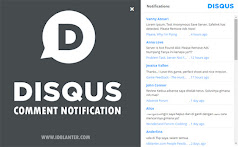"Let click fraud happen"? Uh, no.
Posted by Download Drama Korea Anime Terbaru Full Movie Subtitle Indonesian English
Posted on 2:58:00 AM
You may have seen some of the media coverage generated by a blogger's quoting Eric Schmidt about click fraud. By using select excerpts and ignoring the context of the remarks, that blog post made for an interesting read, but was unfortunately misleading.
Eric spoke at a SIEPR economics event at Stanford in March. At the end of his remarks he took questions. (You can view the whole presentation and Q&A that followed here.)
Here's the relevant question Eric was asked about click fraud: "Recently there’s been some talk about click fraud being a potential threat to the entire advertising business model. I was just wondering what your thoughts on that were and if there’s an economic solution to it more than just technical solutions."
Eric made clear from the very beginning that he wasn't describing our approach to click fraud and was answering hypothetically. He introduced his answer by saying: "Let’s imagine for purposes of argument that click fraud were not policed by Google and it were rampant ..."
The "let it happen" excerpt followed, in which he discusses the economic forces that can retard click fraud: "Eventually the price that the advertiser is willing to pay for the conversion will decline because the advertiser will realize that these are bad clicks. In other words, the value of the ad declines. So, over some amount of time, the system is, in fact, self-correcting. In fact, there is a perfect economic solution, which is to let it happen."
But he made clear that we don't take that approach, by adding that click fraud is "a bad thing and because we don’t like it, and because it does, at least for the short-term, creates some problems before the advertiser sees it, we go ahead and try to detect it and eliminate it." He also said, "In Google's case, we worry about this a lot and we have a number of technical engineers who think that this is great fun to try to go ahead of this and get ahead of it."
The fact is that Google strives to detect every invalid click that passes through its system, and to prevent those clicks from ever reaching an advertiser's account. And Eric and many others at Google have discussed the problem of invalid clicks publicly many times -- on our quarterly earnings calls, at our Press Day, and in other places, such as blogs. Anyone who has followed Google knows that Eric, and others at Google, have stated several times that Google fights invalid clicks, that we've devoted significant resources to manage it, and that we take it very seriously.
Update: Added link to the original story.
Jika Anda menyukai Artikel di blog ini, Silahkan masukan email anda dibawah ini dan tentu saja gratis, dengan begitu Anda akan mendapat kiriman artikel setiap ada artikel yang terbit di Yoko Cyber Pekalongan ( Felix Liem ) - INFO BISNIS ONLINE TERPERCAYA FREE DOWNLOAD VIDEO,MP3






.jpg)


Warning !!!
=> Mohon memberikan komentar yang sopan dan ramah,
=> YOKO LIEM berhak menghapus komentar spam, komentar yang berisi link, atau komentar yang tidak senonoh,
=> YOKO LIEM sangat menghargai keramahan komentar Anda,
=> YOKO LIEM akan berusaha untuk menanggapi komentar Anda dan mengunjungi balik,
Terima kasih sudah berkunjung ^_^
`````Jika anda tidak belajar mencintai diri sendiri terlebih dahulu anda tidak bisa mencintai orang lain`````